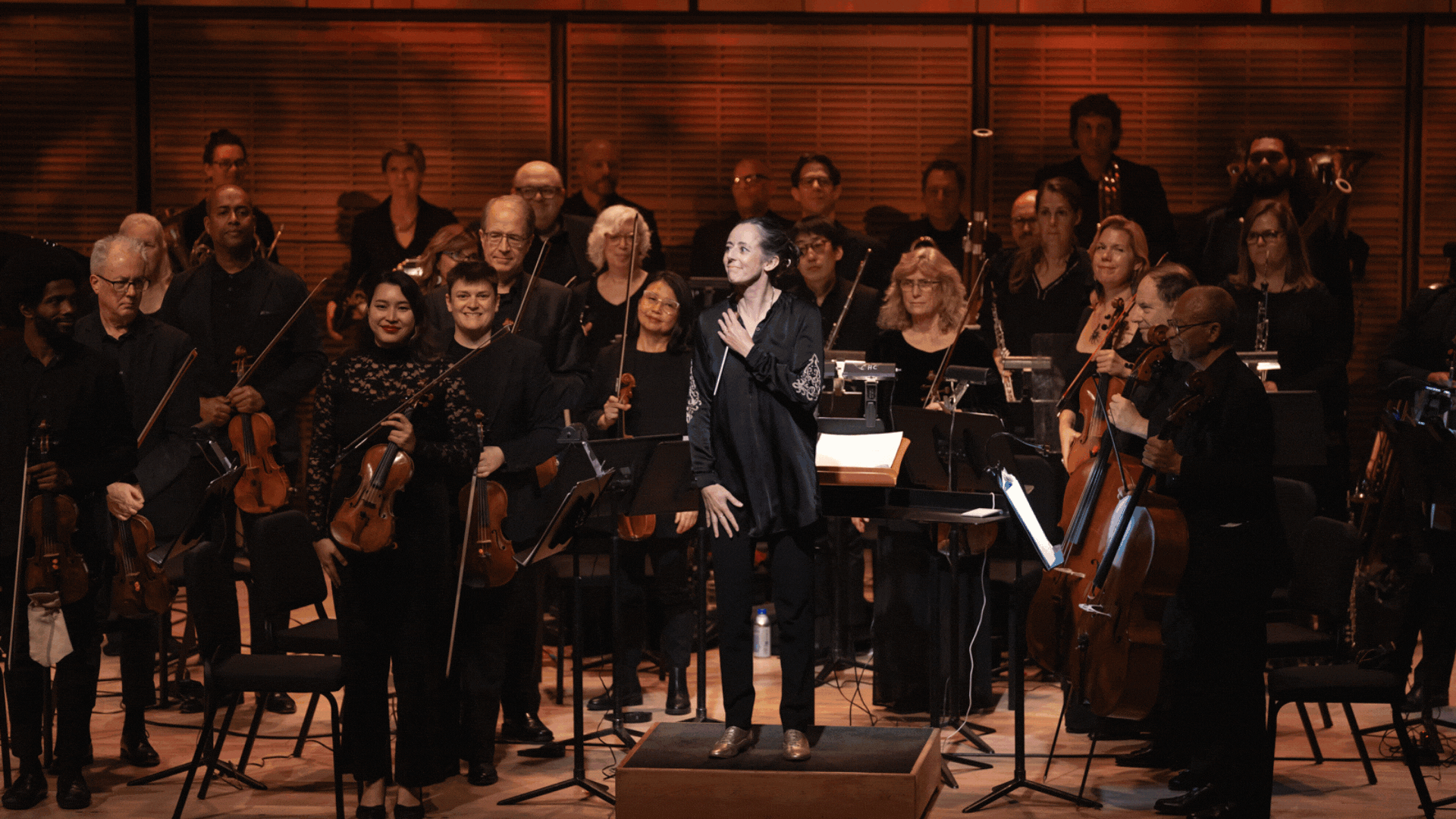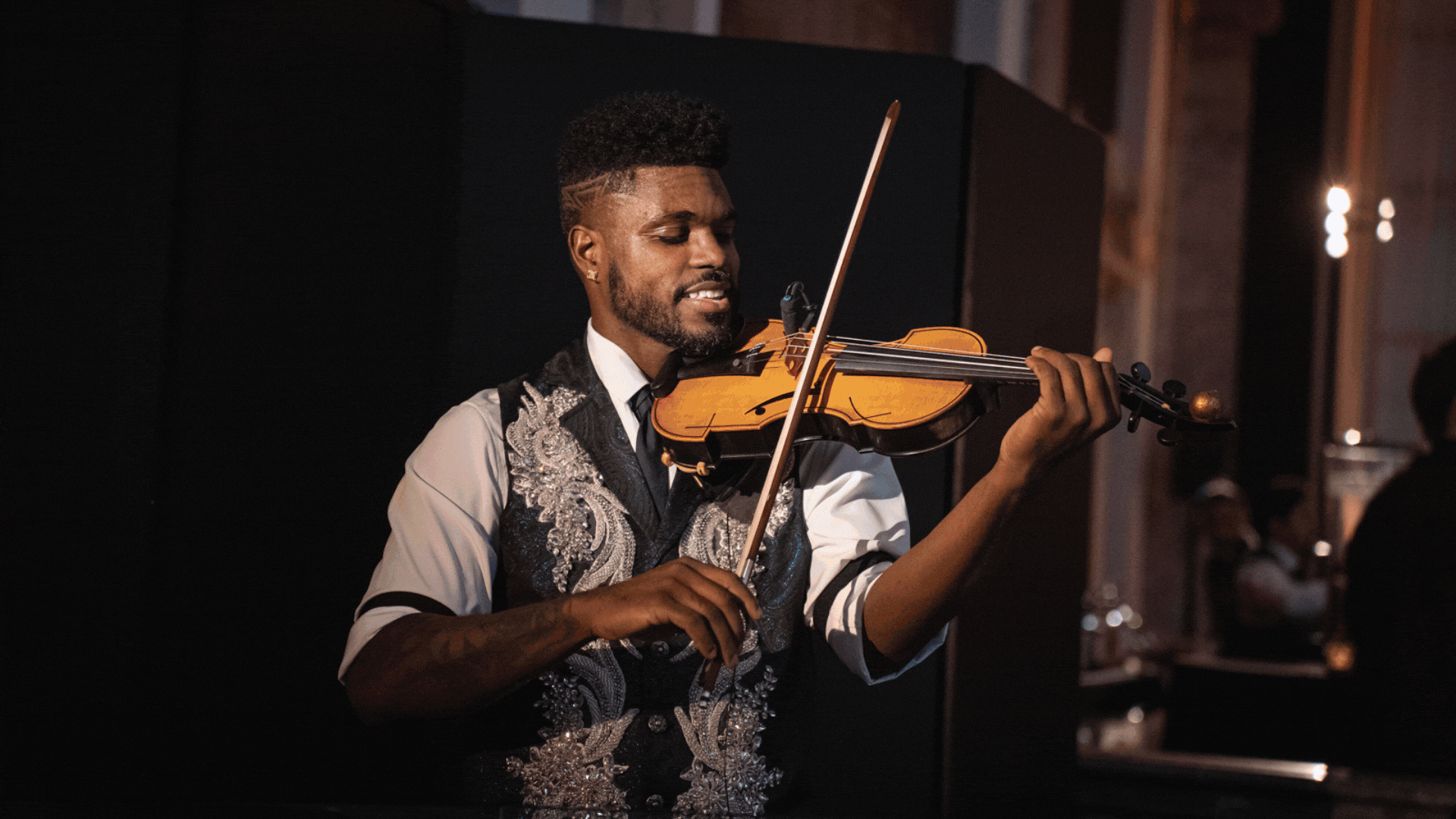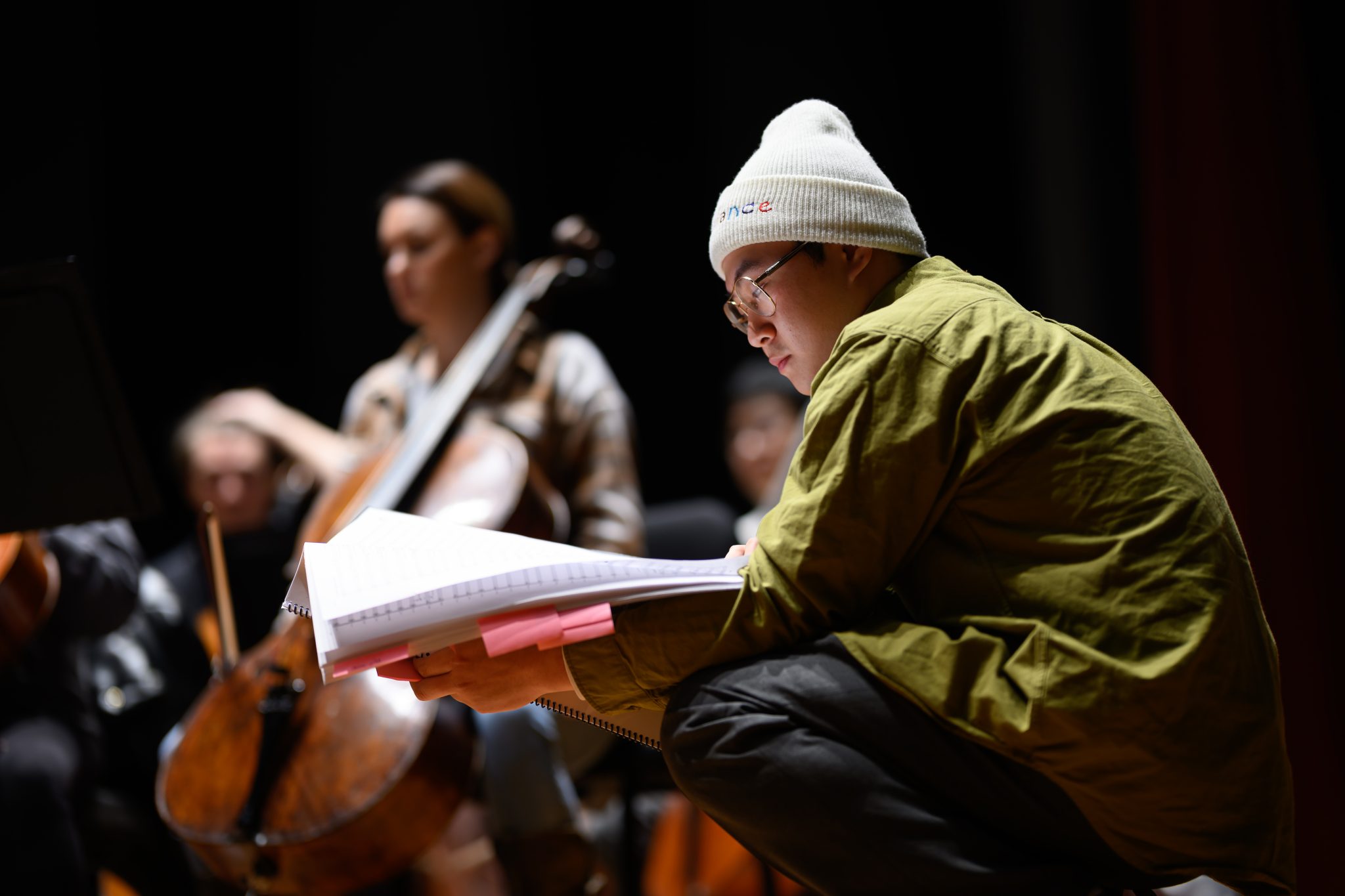Dreamscapes: Q&A with Clarice Assad
Clarice Assad is a Brazilian-American Grammy-nominated composer, pianist, vocalist, bandleader and educator. She has been commissioned by Carnegie Hall, Orquestra Sinfônica de São Paulo, Albany Symphony, BRAVO! Vail Music Festival, and her works have been recorded by Yo-Yo Ma, Nadja Salerno-Sonnenberg, Eugenia Zuckerman, Chanticleer, and Liang Wang. Assad is a founding member of the Chicago-based music and poetry publishing company Virtual Artists Collective and VOXPloration, an award-winning research based outreach program and workshop for children and adolescents on spontaneous music creation, composition, and improvisation.
Clarice's piece Dreamscapes for violin and chamber orchestra is based loosely on Assad’s research on the subject of rapid eye movement (REM) and lucid dreaming. The piece follows a storyline based on notes Assad made about her own dreams, and depicts her struggle to have a pleasant dreaming experience against the strong subconscious draw of negativity.
ACO gives the New York premiere of Dreamscapes with violinist Elena Urioste on Friday, April 6, 2018, 7:30PM at Carnegie Hall's Zankel Hall. Click here for concert details and tickets.

Clarice Assad. PC: Amara Photo.
"One of Brazil's brightest young composers" – Gramophone
American Composers Orchestra: In addition to composing, you are an accomplished singer/pianist and a dedicated educator as co-founder of VOXploration. Can you compare the concert experience as a composer (sitting in the audience listing to a performance of your piece) vs. a performer (on stage and performing your own music)? Do you find one more nerve-wracking than the other?
Clarice Assad: I think being exposed is the nerve-wracking part in either scenario, but it might be more so when I am sitting from an audience. When I perform, I am so preoccupied with the music that I am playing, that I tend to forget about everything else to focus mostly on doing justice to that piece (which most of the time, is music written by other composers…). When my own music being performed by other musicians, I will think about a million things per second. Ultimately though, it’s just an amazing moment to be inside of, having my music performed by people who took the time to learn it and are sharing it with others. The butterflies in the stomach turn out to be a good thing.
ACO: The human voice is the centerpiece of many of your works and performances, including your well-known singing scat concerto which you have performed all over the world. Can you talk about the influence the human voice has, if any, in your instrumental music? The violin is an inherently lyrical instrument -- did you write the solo violin part in Dreamscapes almost as if it was a singing part?
CA: Maybe I unconsciously write for other instruments thinking about the voice, because it is such an important part of my musical life! Dreamscapes is not really singable, though. It has lyrical moments, but I was more concerned about the different emotions and change of scenarios that take place, and the interplay between the orchestra and the soloist.
ACO: As a Brazilian-American who speaks Portuguese, Spanish, French, Italian and English, can you talk about how your music has been influenced, affected, or guided by these languages?
CA: When I think of languages I think of cultures, so yes, I think somehow speaking other languages may influence the way in which we organize thoughts. I traveled frequently to France as a child and this experience deeply influenced me in every area of my life. Traveling at a young age also meant that I came in contact with people from other nationalities, so this may have given me a sense of familiarity with cultures that were not my own, and carte blanche to write in styles and genres that might not have come from my place of origin. I still feel a sense of belonging to more than one place at once.
ACO: Your Dreamscapes violin concerto is inspired by your research on the subject of rapid eye movement (REM) and lucid dreaming, and follows a storyline based on notes you made about her own dreams. Did the process of composing this piece change the way you think about dreams? Did it change anything about your actual dreams?
CA: I have an overactive mind and have had a handful of anxiety related problems affecting sleep. I've experienced many events of sleep paralysis which were petrifying until I knew how to handle them, so I began reading a lot about the brain and sleep. Writing this piece was the way I found to exteriorize what happened in my own mind, obviously because vivid dreams were a constant part of my life. I am in a better place now, having found ways to cope with these symptoms, and the silver lining was to turn vivid dreams into a piece of music.
ACO: What are you looking forward to about the upcoming performance?
CA: Everything. The performance, hearing the orchestra, the soloist, the hall, and the experience of re-visiting a work that is now completing 10 years of existence!
ACO gives the New York premiere of Dreamscapes with violinist Elena Urioste on Friday, April 6, 2018, 7:30PM at Carnegie Hall's Zankel Hall. Click here for concert details and tickets.
Learn more about Clarice at www.clariceassad.com
Follow her on Facebook, Twitter, Instagram, YouTube, and Soundcloud
Corporate gifts to match employee contributions are made by Goldman Sachs, Deutsche Bank, Triton Container International Incorporated of North America, and Neiman Marcus.
Public funds are provided by the New York City Department of Cultural Affairs in partnership with the City Council, and the New York State Council on the Arts with the support of Governor Kathy Hochul and the New York State Legislature, Office of Brooklyn Borough President Reynoso, and the National Endowment for the Arts.






